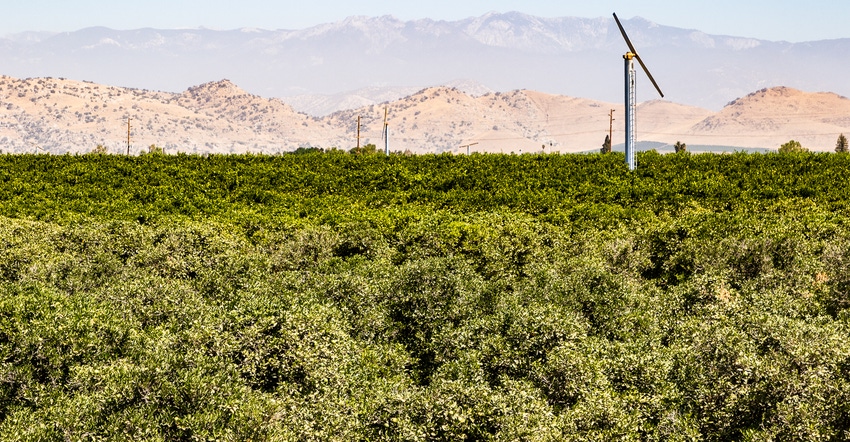
California citrus farmers may have been more helped than harmed by a short-lived freeze that recently struck orchards in two of the state’s growing regions.
Freezing temperatures in the south San Joaquin Valley and coastal Ventura County kept citrus growers up for several nights irrigating and using wind machines to mitigate nighttime lows reported in the mid- and upper 20s. In the end the low temperatures likely helped maturing Navel oranges and may have only caused minimal damage to lemons and mandarins.
“For the most part this has a beneficial cold spell,” said Casey Creamer, executive vice president of California Citrus Mutual, a grower advocacy trade association representing about 75 percent of California citrus producers.
Early Monday morning saw the coldest temperatures of the season in the citrus region of California with temperatures between 27 and 29 degrees in the Valley and as low as 24 degrees in Ventura County. Navel oranges can tolerate temperatures as low as 27 degrees for short periods of time while mandarins and lemons are more susceptible to damage at slightly warmer temperatures.
According to Creamer the difference is in how long temperatures remain at critical levels. For the most part Creamer says fruit quality should benefit from the short-lived freeze.
It could take a few weeks for the industry to know just how detrimental the temperatures were as inspectors and the packing houses look at fruit as it’s processed.
About 25 percent of California’s 3.8 billion fresh-market citrus crop has been harvested to date. Just over 80 percent of the state’s crop is grown in the southern San Joaquin Valley. Harvest activities are expected to last through mid-June on the current crop.
About the Author(s)
You May Also Like






